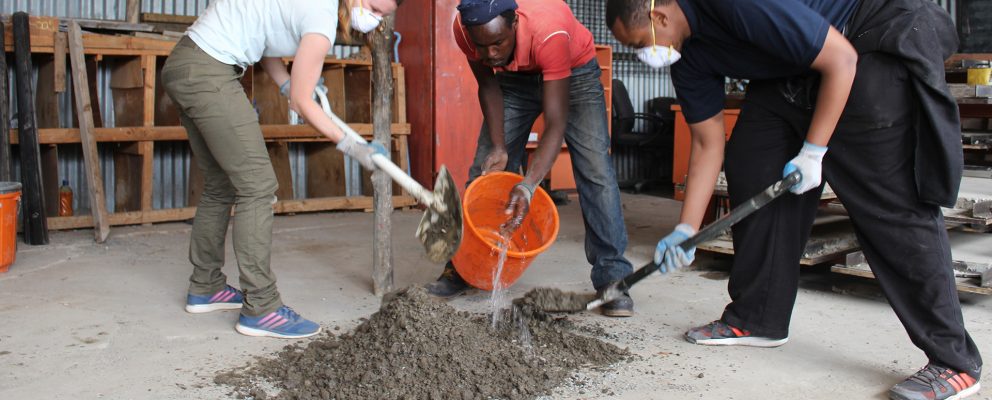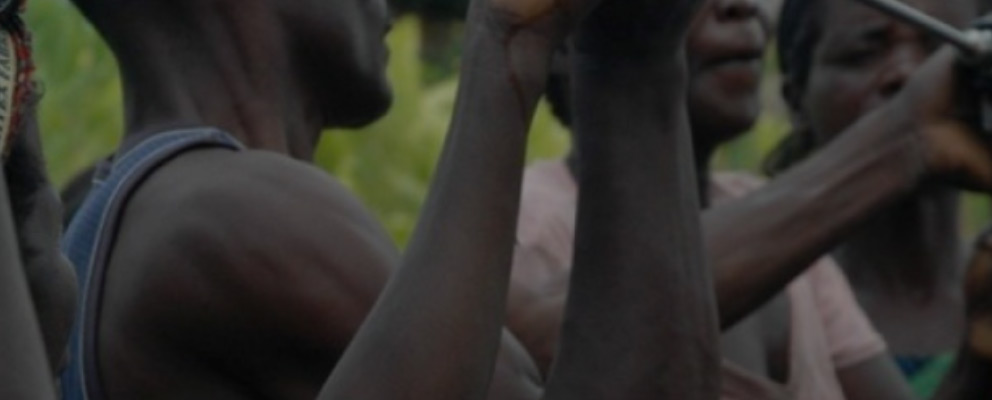Kwangu Kwako builds safer, simpler, and more cost-effective solutions for Kenya’s informal housing settlements. The production process also creates employment opportunities and stronger local economies.
Building better communities through safer informal homes.
In Nairobi alone, 1.4 million people live in informal housing settlements. That’s 60% of the population of Kenya’s largest and capital city. The individual structures—referred to as ‘Mabati’—are built using meagre resources, are often poorly constructed, and the settlement communities are largely overcrowded.
Kwangu Kwako is a social enterprise building safer homes and better communities, named from the Swahili for ‘My place, your place’. Like the title, the initiative itself is universal, creating widespread benefit through increased employment opportunities and stronger local economies.
The background.
Although there are over 200 of these informal settlement communities, the homes occupy just six percent of the city’s land. The areas are densely overpopulated, with many structurally unstable homes in close proximity. The situation is problematic.
The combination of compact living quarters and highly flammable construction materials means fire is a huge problem in these communities. Homes, people, and possessions are at risk.
‘In just three months of 2011, 25,000 people in Nairobi’s slums lost their homes and belongings to fire: an average of 55 homes per day.’
In 2015, in one slum alone, 1,500 homes were lost in just six months.
Kwango-Kwaku creates safer and longer lasting housing options for these informal settlements, and generates improved employment outcomes through local construction and product development.
Our strategy.
By implementing an early convertible note approach, EWB was able to provide initial funding to accelerate Kwangu Kwako’s founding-stage development.
With the base platform for operations in place, the venture secured first investment in April 2016.
This opening round of investment capital enabled Kwangu Kwako to build 40 concrete moulds for 20 homes, and transfer the business’s operating headquarters to a rented warehouse. A Long-Term EWB Fellow partnered to collaborate with the venture throughout the entire early development process.
Learn more about the EWB Fellowship program
With multi-dimensional strategic support, added organizational stability and the early blue-print for larger-scale house production in place, Kwangu Kwako began the journey to scale.
The warehouse and production moulds proved essential. Achieving these key business milestones enabled Kwanngu-Kwako to attract second-round investment and the necessary funds to spark further development.
Safer homes for more stable communities.
Kwangu Kwako builds safer homes for families using reinforced pre-cast concrete panels made by local artisans within the community.
The outcome is a safer, simpler and more cost-effective alternative to the existing Mabati structures, temporary homes built from corrugated iron sheets and bush poles.
The venture consists of an entirely local production cycle, encouraging sustainable investment and improvement within communities.
The modular, precast production process creates benefit for home owners, tenants and landlords alike – with 86% of Nairobi’s settlement properties landlord-owned, engaging them is essential for widespread community change.
All panels and housing construction occurs within the developing areas. This creates local employment opportunities, capacity building and skills improvement, and promotes local spending to complement and support local businesses. Living standards are improved. The superior construction aids in minimizing the spread of, and damage caused by, fire.
‘While the operational model is strong, the housing structures themselves are even more robust.’
Kwangu Kwako houses are:
- Made of precast, reinforced concrete panels.
- Designed to occupy less ground space, with an innovative flooring pattern.
- Insulated from extreme weather conditions with reinforced concrete walls.
- Efficient to construct in regard to both time and money.
- Designed with progressive joinery techniques, ensuring structural rigidity and added sturdiness.
Key outcomes since EWB investment.
Catalyzing essential ongoing investment.
Reaching key milestones enabled Kwangu Kwako to unlock follow-on investments from other sources in June 2016, facilitating further growth for the business.

